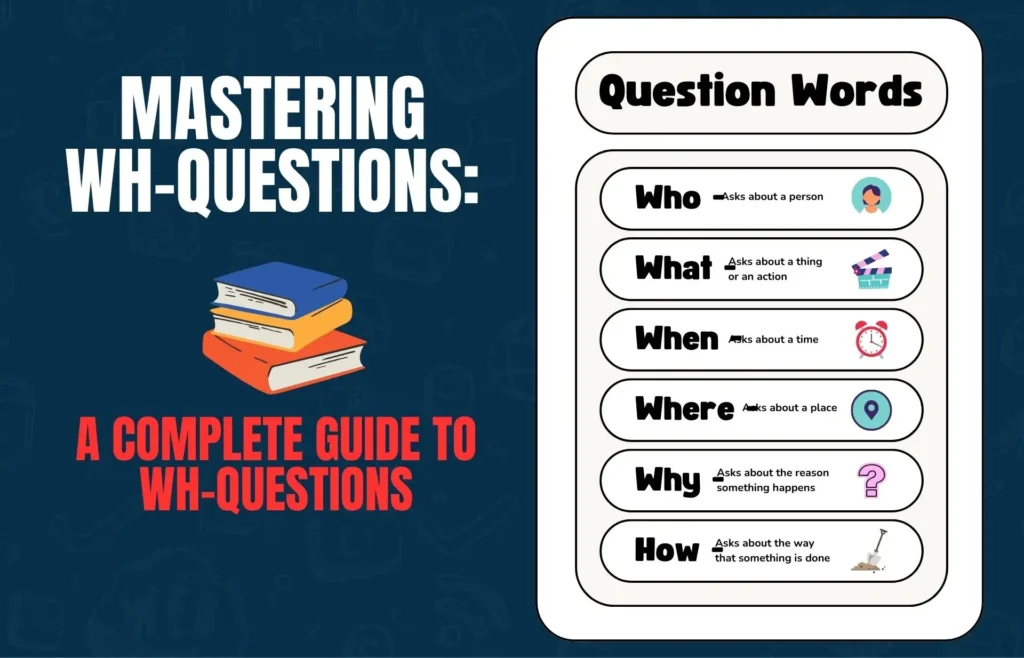Adverbs are a powerful tool in the English language. They help modify verbs, adjectives, and even other adverbs to give more clarity and detail. If used correctly, adverbs can elevate your language skills and improve your communication. However, many learners misuse adverbs, making their sentences sound awkward or redundant. In this guide, we will explore how adverbs can improve your English fluency, common mistakes to avoid, and the best ways to use adverbs effectively in writing and speaking.

1. What Are Adverbs and Why Are They Important?
Before we dive into how adverbs can elevate your language skills, let’s understand what they are.
Adverbs describe how, when, where, or to what extent an action happens. They often end in “-ly” (e.g., quickly, happily, carefully), but not always (e.g., very, too, well).
Why are adverbs important?
- They add depth and clarity to sentences.
- They help express emotions and intensity.
- They improve writing by making descriptions more vivid.
- They allow for more precise communication.
Example:
❌ She spoke. (Unclear)
✅ She spoke confidently. (Better and clearer)
- The Power of Adverbs in Writing and Speaking
One of the best ways to improve your communication with adverbs is to use them strategically. Here’s how they enhance both written and spoken English:
a. Enhancing Descriptions
Adverbs can add important details to sentences, making them more engaging and clear.
✅ She sang beautifully. (Tells us how she sang)
✅ He ran extremely fast. (Adds emphasis)
b. Adding Emotion and Tone
Adverbs help convey emotions in writing and speaking.
✅ She smiled warmly. (Adds friendliness)
✅ He responded angrily. (Shows frustration)
c. Expressing Time and Frequency
Adverbs answer “when” or “how often” something happens.
✅ She always arrives early.
✅ They rarely argue.
- Common Mistakes with Adverbs and How to Fix Them
Even though adverbs can elevate your language skills, many learners misuse them. Let’s look at the most common mistakes and how to fix them.
a. Overusing Adverbs (Redundancy Issue)
Some adverbs add unnecessary repetition, making writing weak.
❌ He shouted loudly. (Shouting is already loud)
✅ He shouted. (No need for “loudly”)
b. Misplacing Adverbs
Placing adverbs in the wrong position can confuse the meaning of a sentence.
❌ She almost drove her kids to school. (Did she drive or not?)
✅ She drove her kids to school almost every day. (Clear meaning)
c. Using Weak Adverbs Instead of Strong Verbs
Instead of relying on adverbs, use stronger verbs.
❌ He ran very fast.
✅ He sprinted.
- How to Use Adverbs Correctly in English
Now that we know the mistakes, let’s focus on how to use adverbs effectively.
a. Choose the Right Adverb for Clarity
Instead of: He speaks really well.
Use: He speaks fluently.
b. Place Adverbs Correctly
Instead of: She often is late.
Use: She is often late.
c. Use Adverbs to Modify the Right Word
Incorrect: He only eats vegetables on weekends. (Does he eat nothing else?)
Correct: He eats only vegetables on weekends.
- Best Ways to Improve Your Writing with Adverbs
Adverbs can elevate your language skills if used wisely. Here’s how to improve writing with adverbs:
Use adverbs to add meaning, not clutter.
Don’t rely on adverbs to replace strong verbs.
Check your sentences—remove unnecessary adverbs.
Read your writing out loud to see if adverbs improve clarity.
Practice by rewriting sentences with and without adverbs.
Conclusion: Master Adverbs to Improve Your Communication
Using adverbs correctly can elevate your language skills and make your English sound more natural. Whether you're writing an essay, having a conversation, or improving your fluency, mastering adverbs will improve your communication with clarity and precision. Avoid common mistakes, choose strong verbs when needed, and place adverbs correctly in sentences. Keep practicing, and soon, you'll see a significant improvement in your writing and speaking!
List of 200 Most Frequently Used Adverbs with Bangla Meanings
- Adverbs Of Manner (How?)
These describe how an action happens.
- Adverb Bangla Meaning
- Quickly দ্রুত
- Slowly ধীরে
- Carefully সাবধানে
- Easily সহজে
- Happily আনন্দের সাথে
- Angrily রাগের সাথে
- Loudly জোরে
- Softly আস্তে
- Clearly স্পষ্টভাবে
- Beautifully সুন্দরভাবে
- Adverbs Of Place (Where?)
These describe where something happens.
- Adverb Bangla Meaning
- Here এখানে
- There সেখানে
- Everywhere সর্বত্র
- Nowhere কোথাও না
- Upstairs উপরে
- Downstairs নিচে
- Outside বাইরে
- Inside ভিতরে
- Nearby কাছাকাছি
- Abroad বিদেশে
- List Of Adverbs Of Time (When?)
These describe when an action happens.
- Adverb Bangla Meaning
- Now এখন
- Then তখন
- Today আজ
- Yesterday গতকাল
- Tomorrow আগামীকাল
- Soon শীঘ্রই
- Later পরে
- Recently সম্প্রতি
- Always সবসময়
- Already ইতোমধ্যে
- List Of Adverbs Of Frequency (How Often?)
These describe how often something happens.
- Adverb Bangla Meaning
- Always সবসময়
- Usually সাধারণত
- Often প্রায়ই
- Sometimes কখনও কখনও
- Rarely খুব কম
- Seldom খুব কমই
- Never কখনও না
- Occasionally মাঝে মাঝে
- Frequently ঘন ঘন
- Regularly নিয়মিতভাবে
- List Of Adverbs Of Degree (To What Extent?)
These describe the intensity of an action.
- Adverb Bangla Meaning
- Very খুব
- Too অতিরিক্ত
- Quite বেশ
- Almost প্রায়
- Totally সম্পূর্ণভাবে
- Absolutely একেবারে
- Hardly কষ্টে
- Deeply গভীরভাবে
- Strongly দৃঢ়ভাবে
- Entirely পুরোপুরি
- Adverbs Of Purpose (Why?)
These describe the reason for an action.
- Adverb Bangla Meaning
- Therefore অতএব
- Thus এইভাবে
- Hence সুতরাং
- So তাই
- Consequently ফলস্বরূপ
- Because কারণ
- Accordingly সেই অনুযায়ী
- Since যেহেতু
- Purposefully উদ্দেশ্যমূলকভাবে
- Intentionally ইচ্ছাকৃতভাবে
- Focusing Adverbs (Emphasis)
These highlight a specific part of the sentence.
- Adverb Bangla Meaning
- Only কেবল
- Just মাত্র
- Even এমনকি
- Mainly প্রধানত
- Mostly বেশিরভাগ
- Specifically বিশেষভাবে
- Particularly বিশেষত
- Especially বিশেষভাবে
- Merely শুধুমাত্র
- Exactly ঠিক
- Interrogative Adverbs (Question Words)
These are used to ask questions.
- Adverb Bangla Meaning
- When কখন
- Where কোথায়
- Why কেন
- How কিভাবে
- Relative Adverbs
These connect clauses and refer to time, place, or reason.
- Adverb Bangla Meaning
- When যখন
- Where যেখানে
- Why কেন
- Conjunctive Adverbs
These connect ideas in sentences.
- Adverb Bangla Meaning
- However তবে
- Therefore সুতরাং
- Moreover তদ্ব্যতীত
- Nevertheless তবুও
- Otherwise অন্যথায়
- Sentence Adverbs
These modify entire sentences rather than single words.
- Adverb Bangla Meaning
- Fortunately সৌভাগ্যক্রমে
- Unfortunately দুর্ভাগ্যবশত
- Honestly সত্যি বলতে
- Frankly খোলাখুলিভাবে
- Clearly স্পষ্টভাবে
- How To Learn This List Of Adverbs In English
Practice writing sentences with each adverb.
Speak daily using new adverbs.
Use flashcards with Bangla meanings for memorization.
Read English books and note how adverbs are used.
200 Most Important Adverb with Bangla Meaning
- Often প্রায়ই
- Usually সাধারণত
- Always সবসময়
- Sometimes কখনও কখনও
- Frequently ঘন ঘন
- Occasionally মাঝে মাঝে
- Rarely খুব কম
- Not না
- Also এছাড়াও
- Very খুব
- However তবে
- Too অত্যন্ত
- Really সত্যিই
- Simply সহজভাবে
- Especially বিশেষভাবে
- Quickly দ্রুত
- Already ইতোমধ্যে
- Directly সরাসরি
- Therefore অতএব
- Else অন্য কিছু
- Thus এইভাবে
- Easily সহজে
- Eventually শেষ পর্যন্ত
- Exactly সঠিকভাবে
- Certainly নিশ্চিতভাবে
- Normally সাধারণত
- Currently বর্তমানে
- Extremely অত্যন্ত
- Finally শেষ পর্যন্ত
- Constantly সর্বদা
- Properly সঠিকভাবে
- Soon শীঘ্রই
- Specifically নির্দিষ্টভাবে
- Ahead সামনে
- Highly অত্যন্ত
- Immediately সাথে সাথে
- Relatively তুলনামূলকভাবে
- Slowly ধীরে
- Fairly যথেষ্ট
- Primarily প্রধানত
- Completely সম্পূর্ণরূপে
- Ultimately সর্বশেষে
- Widely ব্যাপকভাবে
- Recently সম্প্রতি
- Seriously গুরুত্ব সহকারে
- Fully সম্পূর্ণরূপে
- Mostly বেশিরভাগ ক্ষেত্রে
- Naturally স্বাভাবিকভাবে
- Nearly প্রায়
- Occasionally মাঝে মাঝে
- Carefully সতর্কভাবে
- Clearly পরিষ্কারভাবে
- Essentially মূলত
- Possibly সম্ভবত
- Slightly সামান্য
- Somewhat কিছুটা
- Equally সমানভাবে
- Greatly অনেক বেশি
- Necessarily প্রয়োজনীয়ভাবে
- Personally ব্যক্তিগতভাবে
- Rarely খুব কম
- Regularly নিয়মিতভাবে
- Similarly একইভাবে
- Basically মূলত
- Closely ঘনিষ্ঠভাবে
- Effectively কার্যকরভাবে
- Initially প্রাথমিকভাবে
- Literally আক্ষরিকভাবে
- Mainly প্রধানত
- Merely শুধুমাত্র
- Gently আস্তে
- Hopefully আশাবাদীভাবে
- Originally মূলত
- Roughly আনুমানিকভাবে
- Significantly গুরুত্বপূর্ণভাবে
- Totally পুরোপুরি
- Twice দুইবার
- Elsewhere অন্য কোথাও
- Everywhere সর্বত্র
- Obviously স্পষ্টভাবে
- Perfectly পুরোপুরি
- Physically শারীরিকভাবে
- Successfully সফলভাবে
- Suddenly হঠাৎ করে
- Truly সত্যিই
- Virtually প্রায়
- Altogether সম্পূর্ণরূপে
- Anyway যাই হোক
- Automatically স্বয়ংক্রিয়ভাবে
- Deeply গভীরভাবে
- Definitely নিশ্চিতভাবে
- Deliberately ইচ্ছাকৃতভাবে
- Hardly কদাচিৎ
- Readily সহজে
- Terribly ভয়ঙ্করভাবে
- Unfortunately দুর্ভাগ্যবশত
- Forth সামনে
- Briefly সংক্ষেপে
- Moreover উপরন্তু
- Strongly দৃঢ়ভাবে
- Honestly সততার সাথে
- Previously পূর্বে
- Place and Direction Adverbs (কোথায় হয়)
- Adverb Bangla Meaning (বাংলা অর্থ)
- There সেখানে
- Here এখানে
- Now এখন
- Around চারপাশে
- Down নিচে
- Off বন্ধ
- Away দূরে
- Today আজ
- Far দূরে
- Later পরে
- Above উপরে
- Yet এখনো
- Near কাছে
- Forward সামনে
- Somewhere কোথাও
- Anywhere যেকোনো জায়গায়
- Nowhere কোথাও না
- Tomorrow আগামীকাল
- Yesterday গতকাল
- When কখন
- How কিভাবে
- So তাই
- Up উপরে
- No না
- Only কেবল
- Well ভালোভাবে
- Then তারপর
- First প্রথমে
- Now এখন
- More আরও
- About সম্পর্কে
- Such এমন
- Less কম
- Much অনেক
- A lot অনেক বেশি
- Few অল্প কিছু
- First প্রথমে
- Next পরবর্তী
- Last সর্বশেষ
- Less কম
- Because কারণ
- So তাই
- Not না
- Never কখনও না
- Otherwise অন্যথায়
- Please দয়া করে
- Yeah হ্যাঁ
- Just শুধু
- Better ভালো
- Only কেবলমাত্র
- Most সর্বাধিক
- Also এছাড়াও
- Right ঠিক
- Back পেছনে
- Best সর্বোত্তম
- Free বিনামূল্যে
- Since যেহেতু
- Almost প্রায়
- Above উপরে
- Out বাইরে
- Absolutely সম্পূর্ণভাবে
- Abroad বিদেশে
Using adverbs correctly can elevate your language skills and make your English sound more natural. Whether you’re writing an essay, having a conversation, or improving your fluency, mastering adverbs will improve your communication with clarity and precision. Avoid common mistakes, choose strong verbs when needed, and place adverbs correctly in sentences. Keep practicing, and soon, you’ll see a significant improvement in your writing and speaking!


